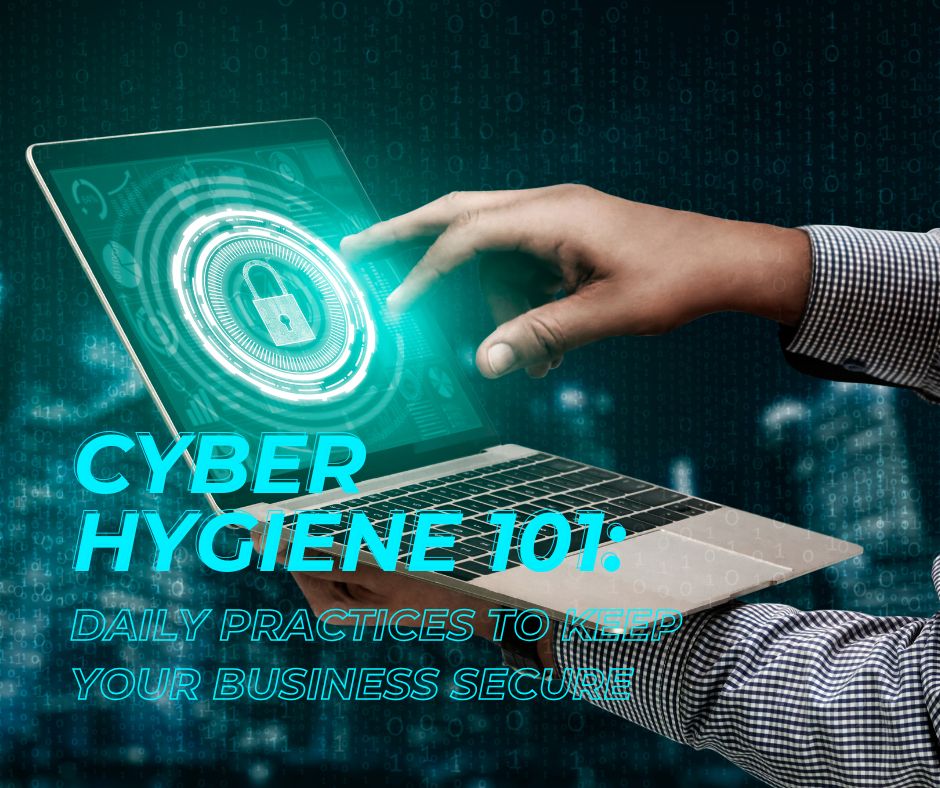
Cybersecurity threats are constantly evolving, making it essential for businesses to adopt strong cyber hygiene practices. Just as good personal hygiene keeps you healthy, proper cyber hygiene helps protect your company’s sensitive data, employees, and customers from cyber threats. By implementing simple, daily cybersecurity habits, businesses can reduce the risk of cyberattacks and strengthen their overall security posture.
Cyber hygiene refers to the routine practices and precautions that individuals and businesses take to maintain cybersecurity and protect systems from cyber threats. It involves proactive security measures to prevent unauthorized access, data breaches, and malware infections.
Passwords are the first line of defense against cyber threats. Ensure that all employees use:
Encourage employees to update passwords regularly and avoid using easily guessed words like “password123” or “admin.”
MFA adds an extra layer of security by requiring more than just a password to access accounts. This can include a one-time code sent to a mobile device or biometric authentication like fingerprints. Enforcing MFA on business applications and systems helps prevent unauthorized access.
Cybercriminals often exploit vulnerabilities in outdated software. Ensure that:
Automating updates can help maintain security without relying on employees to do it manually.
Phishing emails trick employees into clicking malicious links or downloading harmful attachments. Train staff to:
Laptops, smartphones, and other work devices must be secured to prevent data breaches. Ensure that employees:
Not every employee needs access to all company data. Implement:
Data loss can be devastating for businesses. To prevent permanent loss, set up:
A well-informed team is a company’s best defense against cyber threats. Conduct:
Early detection of suspicious behavior can prevent major security incidents. Businesses should:
Despite best efforts, security incidents can still occur. A strong incident response plan should include:
Good cyber hygiene is not a one-time effort—it’s a daily commitment to keeping your business secure. By implementing these simple but effective cybersecurity practices, businesses can protect their data, employees, and customers from cyber threats. Cybersecurity starts with small, consistent habits that create a strong defense against ever-evolving risks.
Is your business taking the right steps to maintain cyber hygiene? If you need expert guidance on strengthening your cybersecurity strategy, Rion Technology is here to help! Implementing robust cybersecurity measures is crucial in today’s digital landscape. Our team at Rion Technology specializes in modern ransomware backup strategies that ensure your critical data remains protected and recoverable in the event of an attack. Let us help you build a comprehensive approach to safeguard your business and mitigate risks effectively. In today’s digital landscape, proactive measures are essential for safeguarding sensitive information and ensuring business continuity. Rion Technology specializes in developing tailored solutions that address the unique security needs of your organization, including overcoming IT challenges in startups. By partnering with us, you can enhance your resilience against cyber threats and focus on driving your business forward.